Across China: Fusing tradition and innovation in Dragon Boat Festival
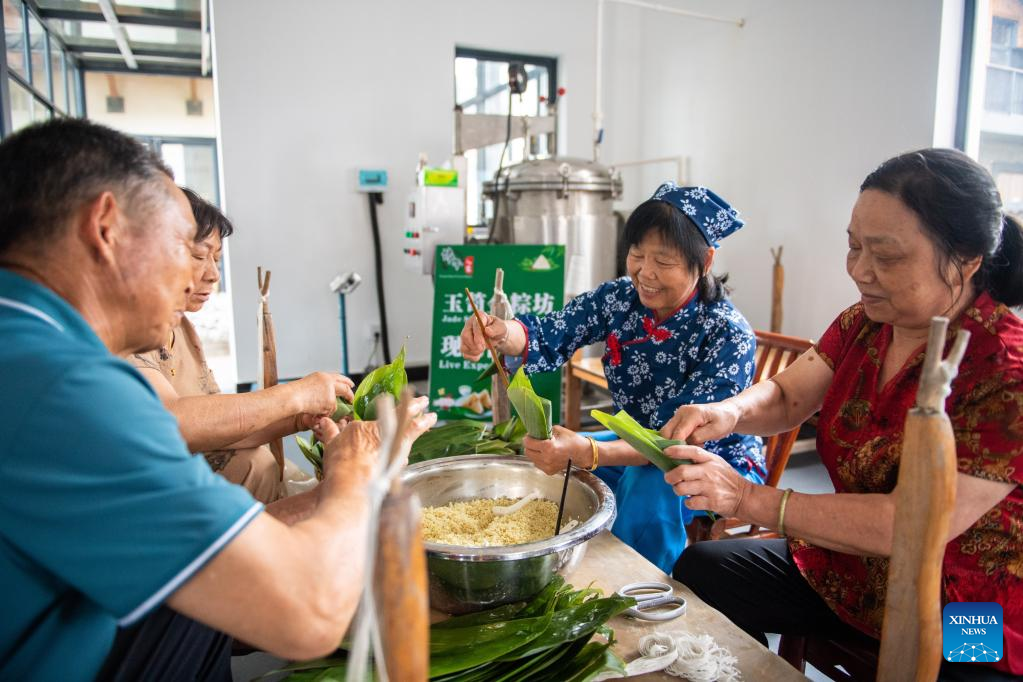
People make Zongzi, a pyramid-shaped dumpling made of glutinous rice wrapped in bamboo or reed leaves, in Quzici Town of Miluo City, central China's Hunan Province, June 22, 2023.(Xinhua/Chen Sihan)
CHANGSHA, June 23 (Xinhua) -- Amidst the resounding beats of drums and shimmering azure waves, the exhilarating dragon boat races in the city of Miluo in central China's Hunan Province present a captivating spectacle, stirring up cascades of spray and creating an electrifying atmosphere.
As the Dragon Boat Festival holiday is now celebrated throughout China, Miluo, often referred to as the "hometown of dragon boat races," has been enveloped in a lively and spirited festive aura.
Mawuna Ayefounin, a Togolese student who has actively taken part in many dragon boat races in China, said that dragon boat sports encapsulate the essence of unity, cooperation and mutual support deeply rooted in Chinese traditional culture.
"The spirit of dragon boat is centered around the collective effort to achieve something greater. These values will undoubtedly prove invaluable to me throughout my life," he said.
The Dragon Boat Festival, also known as Duanwu Festival, traditionally falls on the fifth day of the fifth month in the Chinese lunar calendar and it was celebrated on Thursday this year.
During the festival, Chinese people commemorate Qu Yuan, who was also a minister of the State of Chu during the Warring States Period (475 BC-221 BC). The poet tragically drowned himself in the Miluo River after he was accused of treason and banished for his well-intended advice to the king.
Legend has it that upon learning of his death, locals took to boats on the river in search of his body, dropping rice into the water in an effort to prevent the fish from eating him.
Even after thousands of years, the people of Miluo have not allowed their sentiments for Qu Yuan to wane with the passage of time. On the contrary, their admiration has only grown stronger and evolved into various new forms beyond the traditional rituals.
One of the customs associated with the festival is the practice of hanging wormwood, which possesses a distinct fragrance and is known for its mosquito and insect-repellent properties. Thanks to the unique natural environment along the Miluo River, wormwood produced in Miluo is of high quality.
By seamlessly merging ancient folk customs with modern technology and creative thinking, the tradition of wormwood has undergone a remarkable transformation. From its humble origins in rudimentary craftsmanship, wormwood-based products such as pillows and cushions have evolved into exquisite items that possess a refined quality, making them highly coveted in today's market.
"We are committed to exploring the harmonious blend of ancient techniques and modern technology, with an emphasis on enhancing the consumer experience. We aim to carefully select fabrics that seamlessly integrate wormwood products into daily life," said Xu Lang, head of a wormwood technology company based in Miluo, adding that the company has seen sales volumes surpassing 1 million yuan (about 139,300 U.S. dollars) for two consecutive years.
With such a fusion of tradition and innovation, and the ingenuity of a new generation of Miluo people, a range of creative products has emerged.
The exhibition hall of Hunan Miluojiang Food Co., Ltd. showcases a wide array of Dragon Boat Festival cultural and creative products. Among these captivating items are handbags adorned with exquisite paintings depicting ancient Chinese landscapes encompassing the symbolic Duanwu food known as Zongzi, a pyramid-shaped dumpling made of glutinous rice wrapped in bamboo or reed leaves.
Furthermore, a variety of "blind boxes" are available in the exhibition hall, holding zongzi of different flavors, eagerly awaiting to be unveiled by curious customers. Another popular item is the gift box, consisting of zongzi, a Miluo hand-painted map, a writing brush and a wormwood sachet. This comprehensive selection allows customers to bring home a true embodiment of Miluo's cultural heritage.
This year, the company has achieved a remarkable sales volume of 30 million yuan. "We are delving deep into the Duanwu culture, incorporating elements that resonate with young people, and incorporating their preferences into our product designs," said Fu Zecheng, chairman of the company.
"This approach not only makes the products more appealing and popular but also helps spread our rich cultural heritage," Fu added.

People commemorate Qu Yuan, who was a minister of the State of Chu during the Warring States Period (475 BC-221 BC), at a cultural park in Quzici Town of Miluo City, central China's Hunan Province, June 22, 2023.(Xinhua/Chen Sihan)
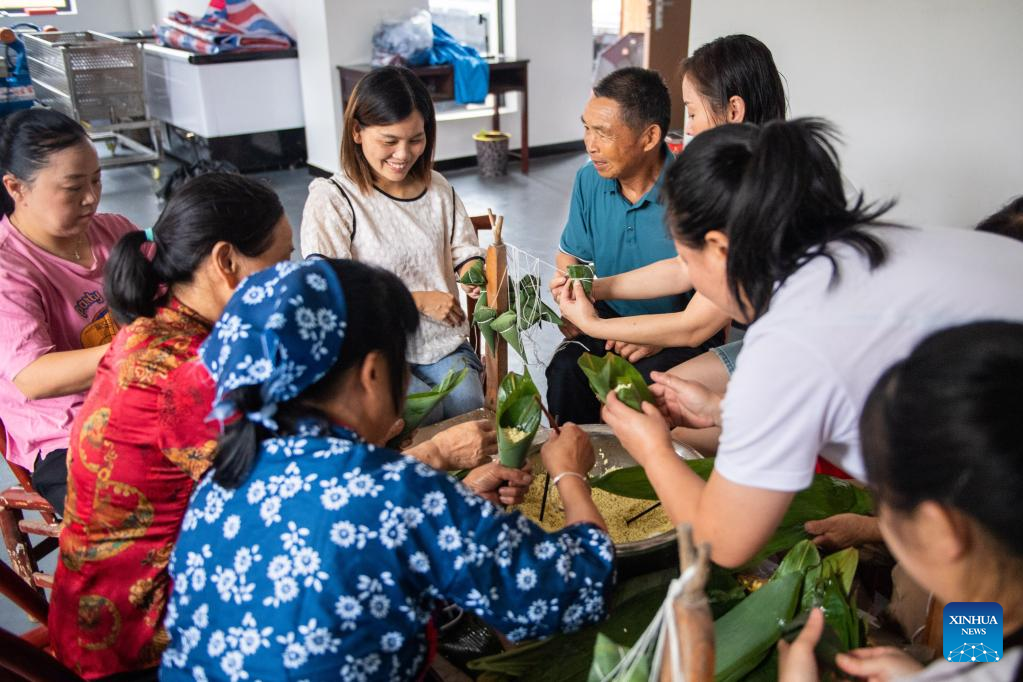
People make Zongzi, a pyramid-shaped dumpling made of glutinous rice wrapped in bamboo or reed leaves, in Quzici Town of Miluo City, central China's Hunan Province, June 22, 2023.(Xinhua/Chen Sihan)
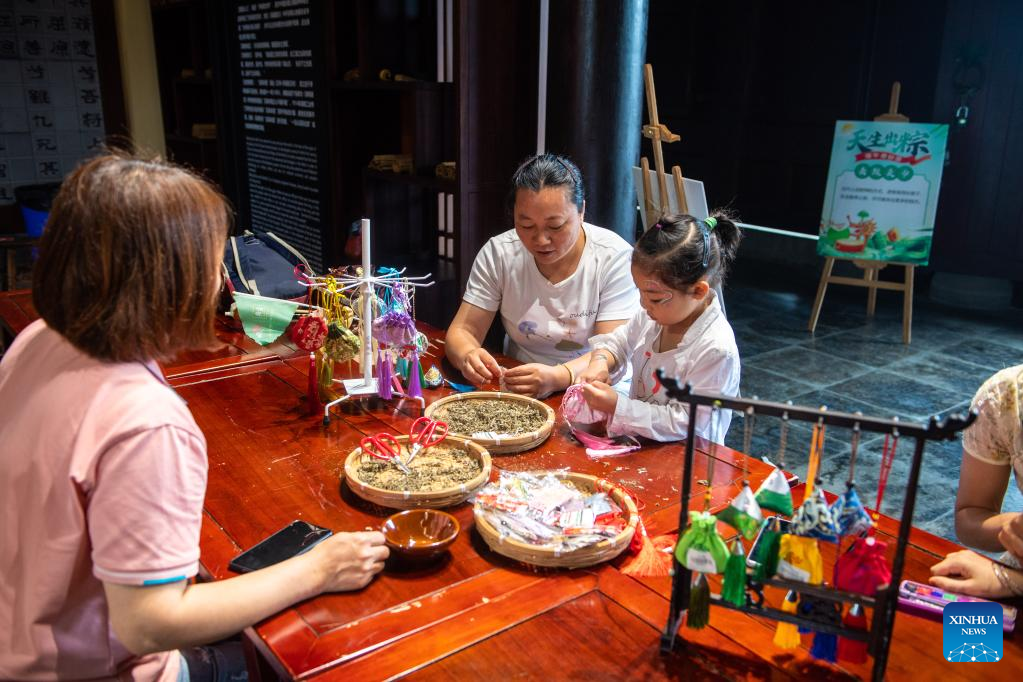
Tourists make Chinese traditional sachets at a cultural park in Quzici Town of Miluo City, central China's Hunan Province, June 22, 2023.(Xinhua/Chen Sihan)
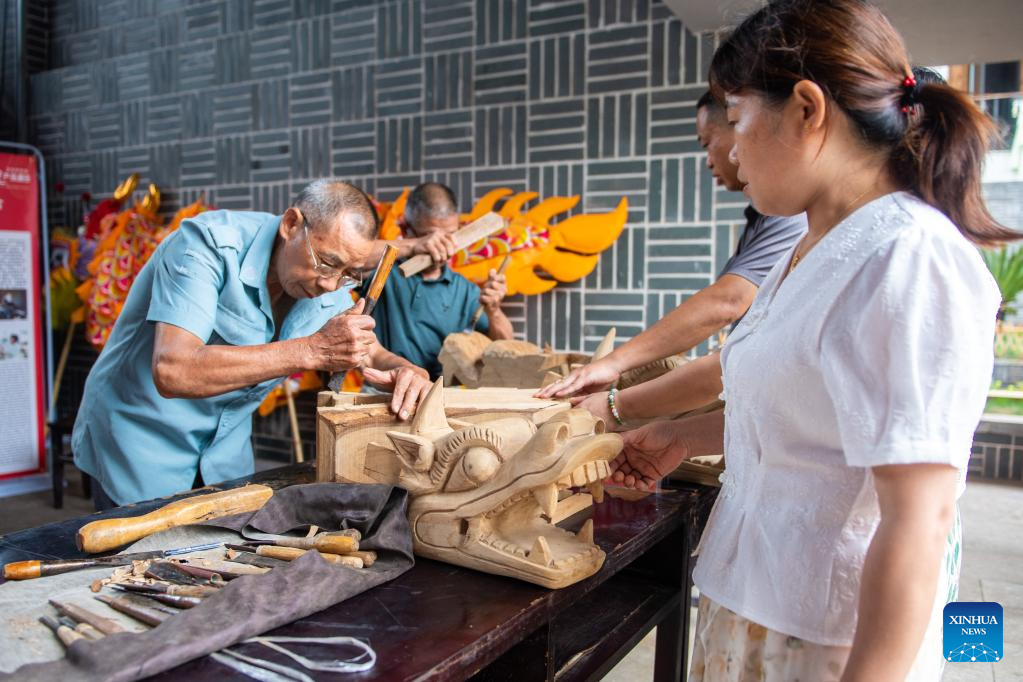
Craftsmen demonstrate dragon heads carving skills in Quzici Town of Miluo City, central China's Hunan Province, June 22, 2023.(Xinhua/Chen Sihan)
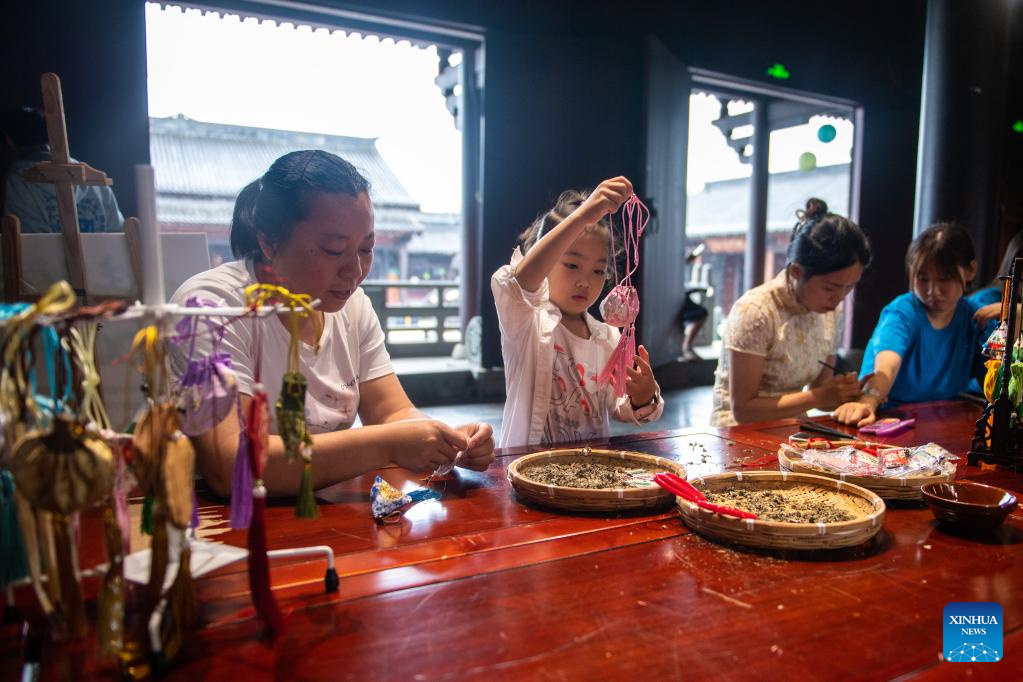
Tourists make Chinese traditional sachets at a cultural park in Quzici Town of Miluo City, central China's Hunan Province, June 22, 2023.(Xinhua/Chen Sihan)
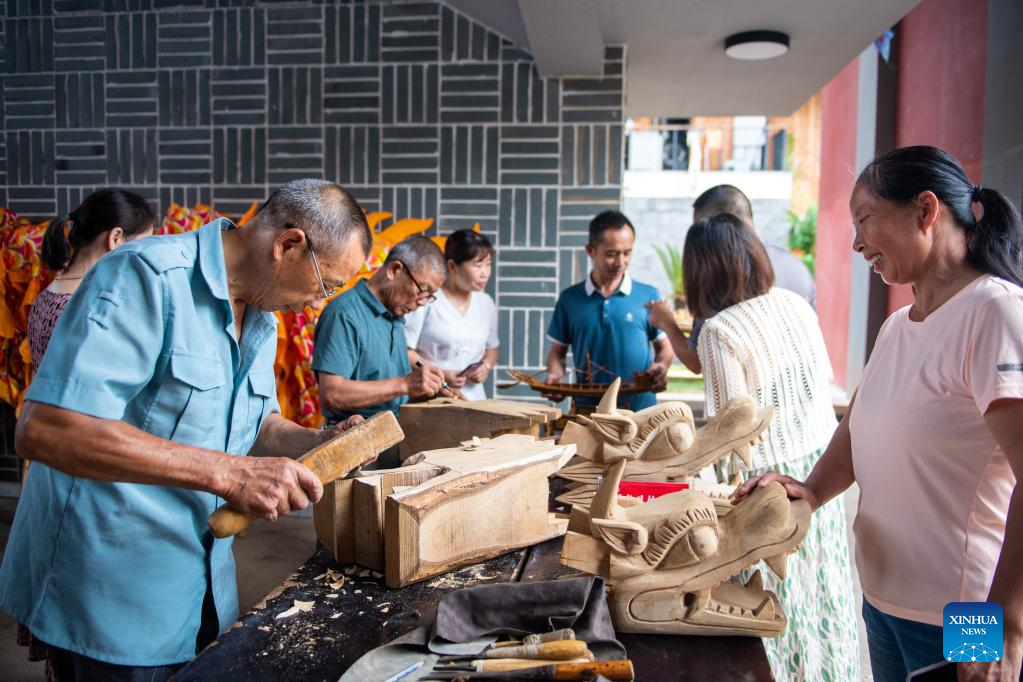
Craftsmen demonstrate dragon heads carving skills in Quzici Town of Miluo City, central China's Hunan Province, June 22, 2023.(Xinhua/Chen Sihan)
Photos
 2023 "My Story of Chinese Hanzi" international competition kicks off
2023 "My Story of Chinese Hanzi" international competition kicks off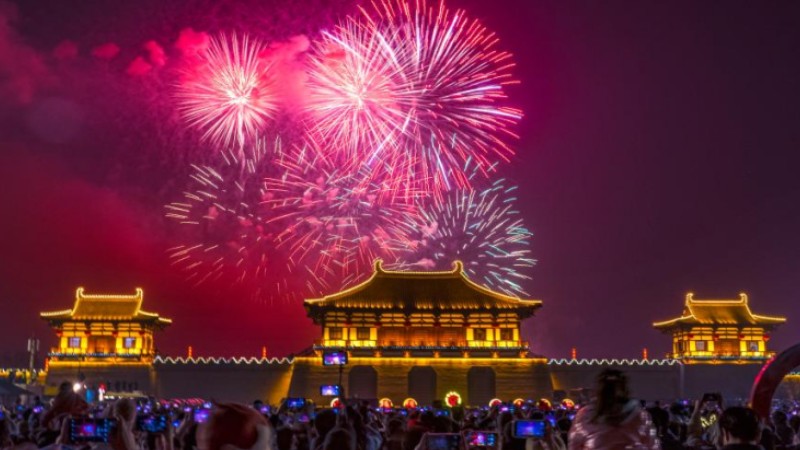 Ancient city explores innovative transformation to gain new vitality
Ancient city explores innovative transformation to gain new vitality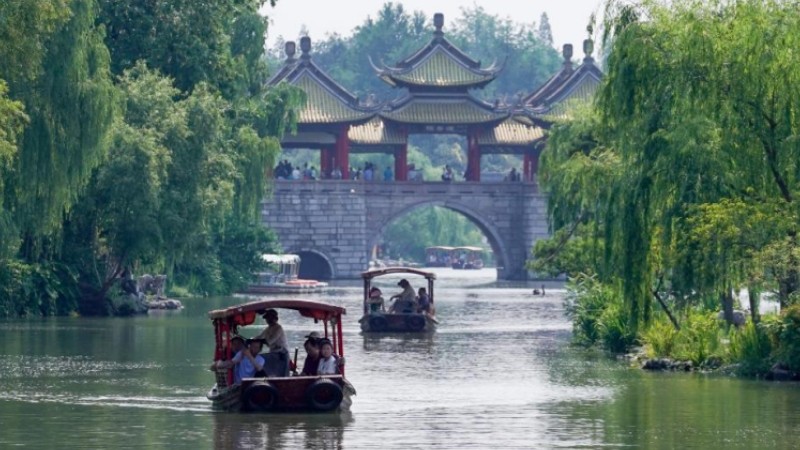 Yangzhou witnesses integration of traditional culture and culture creative industry
Yangzhou witnesses integration of traditional culture and culture creative industry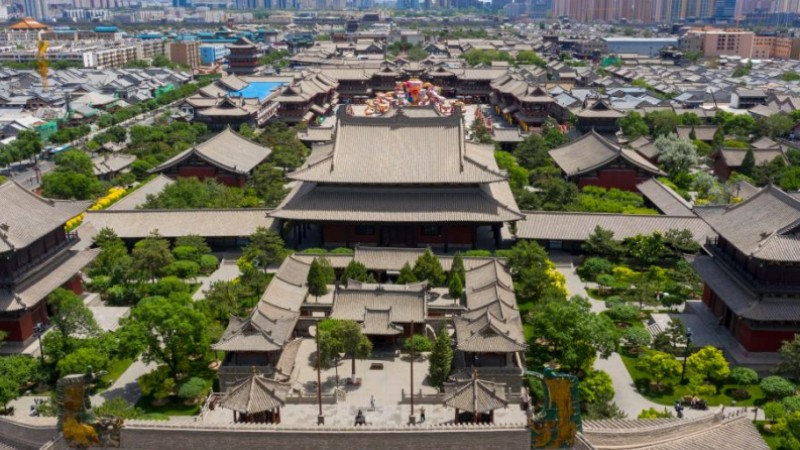 Datong develops tourism combining rich cultural heritages and well-known attractions
Datong develops tourism combining rich cultural heritages and well-known attractions
Related Stories
- Cultural and Natural Heritage Day marked across China
- In pics: 19th China Int'l Cultural Industries Fair in Shenzhen
- The naughty boy who became a skilled cultural relic restorer
- Digitalization a new frontier for globalizing Chinese culture
- 19th China International Cultural Industries Fair closes in Shenzhen
- Six exhibition halls set up at 19th ICIF in Shenzhen
- Highlights of the 19th China (Shenzhen) International Cultural Industries Fair (ICIF)
- UNESCO's Intangible Cultural Heritages in China (Ⅳ)
- Chicago Field Museum hosts Chinese Culture Day
- UNESCO's Intangible Cultural Heritages in China (Ⅲ)
Copyright © 2023 People's Daily Online. All Rights Reserved.





